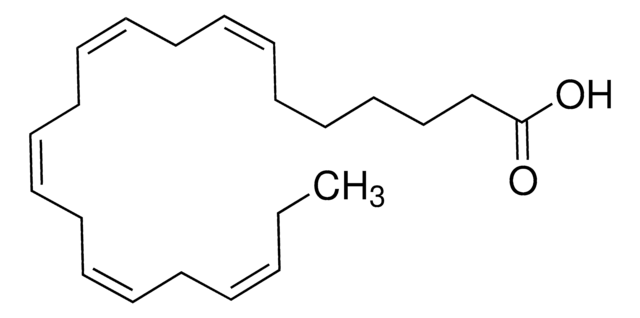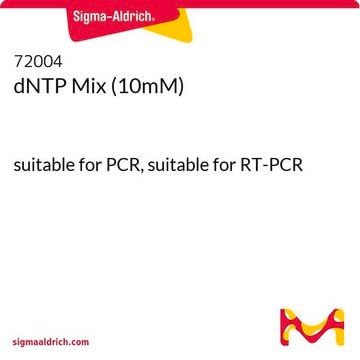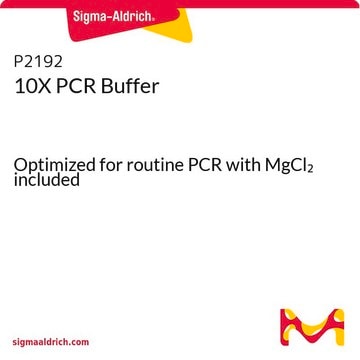Fontos dokumentumok
D4545
Taq DNA Polymerase from Thermus aquaticus
with 10× PCR reaction buffer without MgCl2
Szinonimák:
Taq polymerase, Taq polymerase enzyme
About This Item
Javasolt termékek
biológiai forrás
enzyme from bacterial (Thermus Aquaticus)
Minőségi szint
rekombináns
expressed in E. coli
Forma
liquid
használat
sufficient for 1500 reactions
sufficient for 250 reactions
sufficient for 50 reactions
sufficient for 5000 reactions
Jellemzők
dNTPs included: no
hotstart: no
koncentráció
5 units/μL
technika/technikák
PCR: suitable
szín
colorless
bemenet
purified DNA
alkalmasság
suitable for PCR and automated sequencing reactions
alkalmazás(ok)
agriculture
kiszállítva
wet ice
tárolási hőmérséklet
−20°C
Looking for similar products? Látogasson el ide Útmutató a termékösszehasonlításhoz
Általános leírás
Alkalmazás
- in the process of DNA extraction (during gene amplification and sequencing)
- in genotyping
- in polymerase chain reaction (PCR) to study the constitutive production of epithelial neutrophil activating peptide 78 (ENA-78) and interleukin-8 (IL-8)
- for amplification of RNA from primary endothelial cells by conventional PCR
Biokémiai/fiziológiai hatások
Tulajdonságok és előnyök
- MgCl2 provided in a separate tube to allow MgCl2 optimization
- Can withstand repeated heating to 95 °C without significant loss of activity
Kiszerelés
Egyéb megjegyzések
Egység definíció
Jogi információk
kapcsolódó termék
Figyelmeztető mondatok
Óvintézkedésre vonatkozó mondatok
Veszélyességi osztályok
Aquatic Chronic 3
Tárolási osztály kódja
12 - Non Combustible Liquids
WGK
WGK 2
Lobbanási pont (F)
Not applicable
Lobbanási pont (C)
Not applicable
Válasszon a legfrissebb verziók közül:
Analitikai tanúsítványok (COA)
Nem találja a megfelelő verziót?
Ha egy adott verzióra van szüksége, a tétel- vagy cikkszám alapján rákereshet egy adott tanúsítványra.
Már rendelkezik ezzel a termékkel?
Az Ön által nemrégiben megvásárolt termékekre vonatkozó dokumentumokat a Dokumentumtárban találja.
Az ügyfelek ezeket is megtekintették
Cikkek
Explore PCR's history, from discovery to Nobel Prize. Discover real-time PCR (qPCR) and digital PCR developments.
The polymerase chain reaction is one of the most widely used techniques in molecular biology. The PCR process consists of three main steps, Denaturation, Annealing & Extension
Protocols
Hot start dNTP protocol enhances specificity in PCR by blocking DNA polymerase nucleotide incorporation during PCR.
Hot Start dNTPs block DNA polymerase until heat activation, enhancing PCR specificity.
Learn standard PCR protocol steps and review reagent lists or cycling parameters. This method for routine PCR amplification of DNA uses standard Taq DNA polymerase.
Tudóscsoportunk valamennyi kutatási területen rendelkezik tapasztalattal, beleértve az élettudományt, az anyagtudományt, a kémiai szintézist, a kromatográfiát, az analitikát és még sok más területet.
Lépjen kapcsolatba a szaktanácsadással














